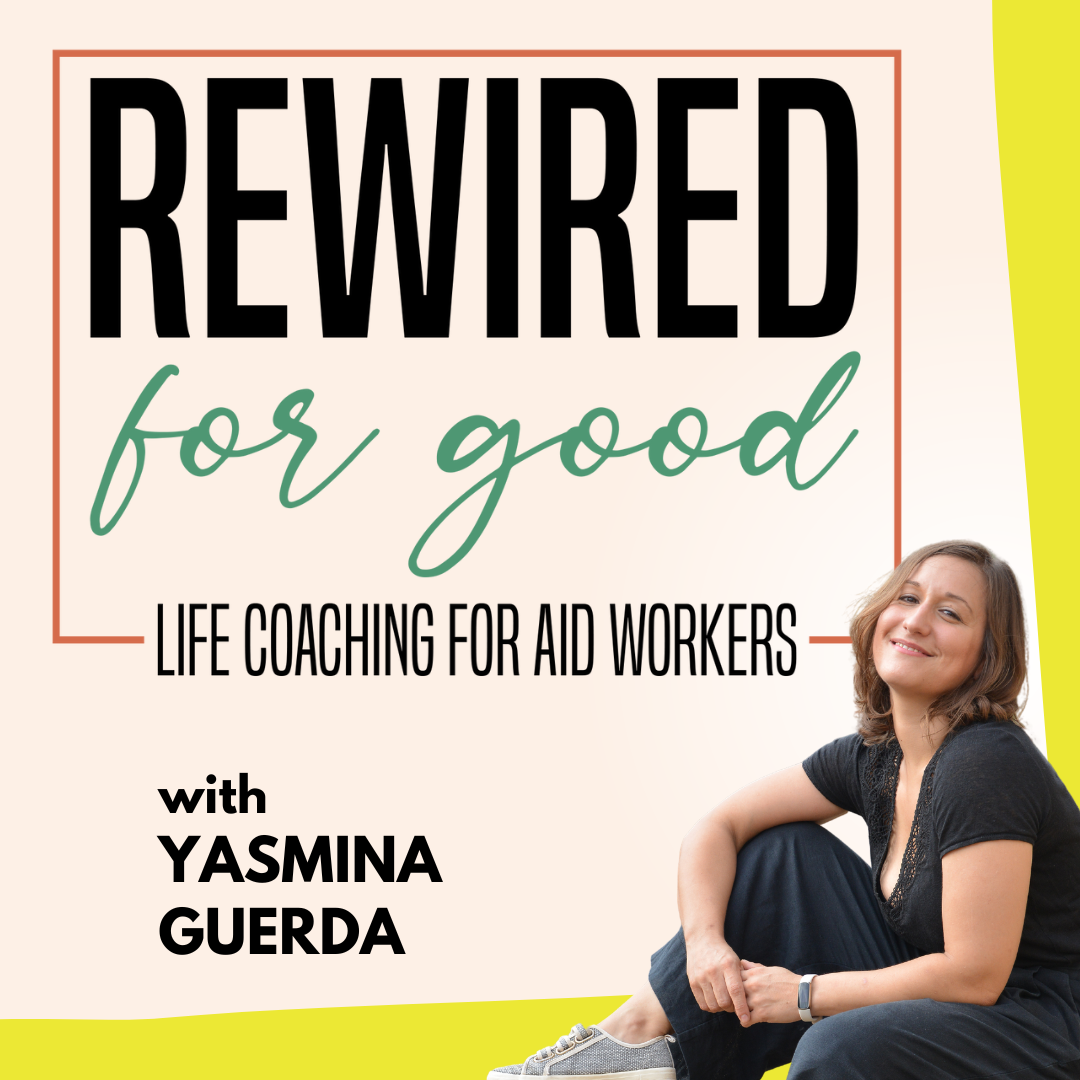Rewired for Good
The Podcast
LIFE COACHING TOOLS FOR AID WORKERS
The Rewired for Good podcast is the go-to resource for aid workers looking for concrete ways to stay sane amid chaos and never-ending challenges, to upgrade their productivity and creativity, and to stop sacrificing their own personal lives to help others.
In this podcast, Yasmina Guerda, aid worker and certified life coach, helps you better understand how your mind and your emotions can work for you instead of against you, and offers immediately applicable tools to uplevel your work, your relationships, your mental health and your life altogether.
No matter where you are. No matter what you're dealing with.
Newest episodes
4. Surviving the office jerk: 3 ways to keep your cool
Working in the humanitarian sector can feel like juggling flaming torches—tight deadlines, endless deliverables, and life-or-death stakes. And then, enter the office jerk. These difficult colleagues can leave us feeling frustrated, demotivated, and sometimes ready to toss in the towel. Let’s face it, dealing with them is a massive drain on our time, energy, and mental space, often leading to stress, burnout, and a real hit to our quality of life—and impact. When that office jerk strikes, emotions run high, and staying calm and true to your values? Yeah, not always easy.
But don't worry! In this episode, you'll get:
A short exercise to talk yourself off the roof when you feel like you're losing your mind
Tips for setting effective boundaries like a pro
Three mindset shifts to help you reframe the drama and think more clearly.
3. Work-life balance and other nonsense
World Mental Health day is an opportunity to take stock of where we stand in the humanitarian sector, despite much progress made in this field over the past couple of decades. This episode looks at 5 persisting ideas and myths in the humanitarian sector regarding mental health that may not only be inaccurate but actually harmful. They make it harder to tackle mental health issues adequately, with serious consequences not just for aid workers, but also humanitarian organizations and projects, and ultimately, crisis-affected people and our collective ability to have a positive impact. A myth-debunking episode.
Oh and just a reminder: The content shared on this podcast is my own, and in no way endorsed by any international organisation or any humanitarian or development entity.
It is provided for information and inspiration purposes only and it is not a substitute for medical advice. Please make sure to seek the support of a health-care professional if you think you need that kind of help.






